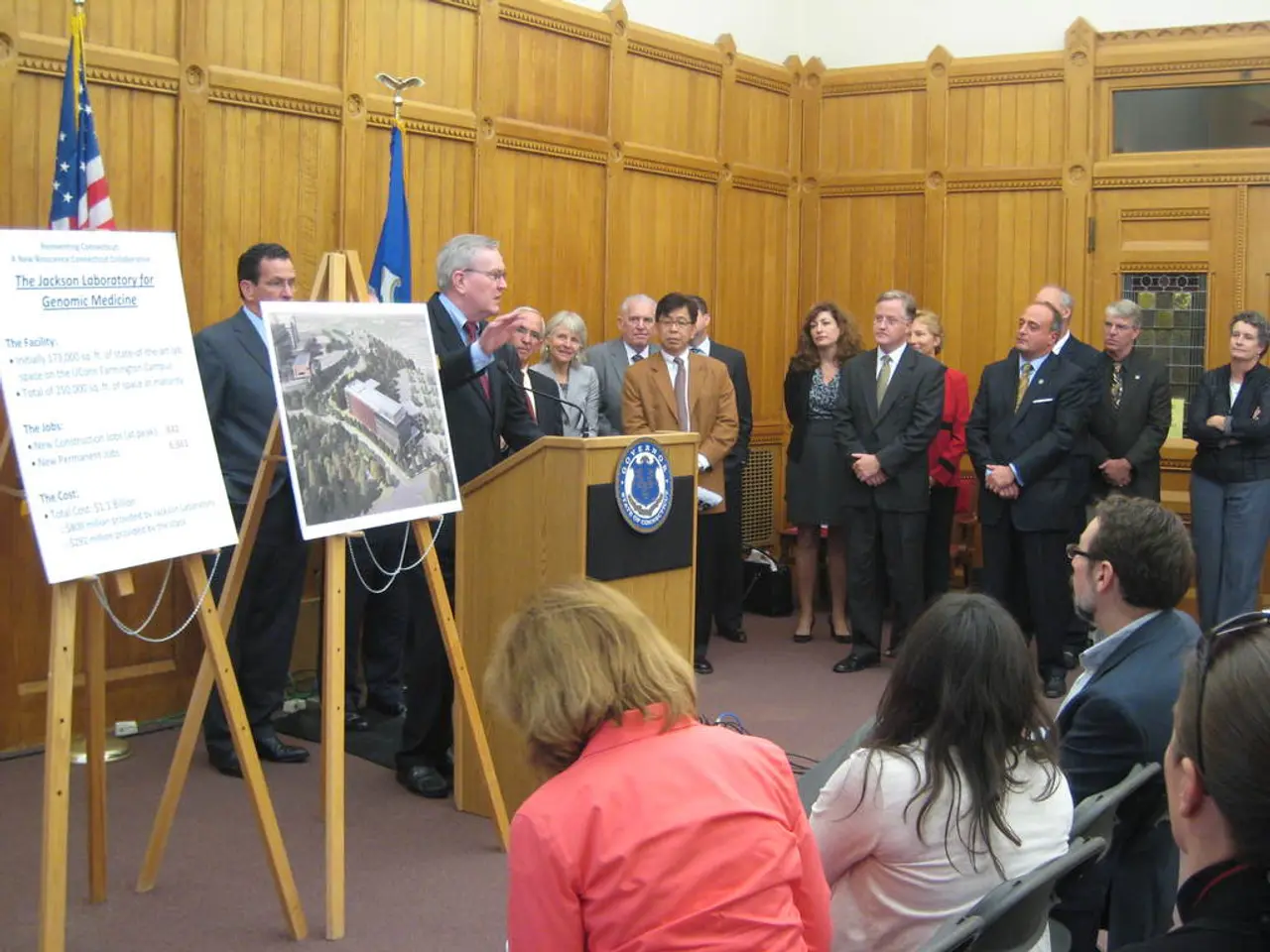Brosius-Gersdorf defends her image in the 'Markus Lanz' show - Markus Lanz's discussion sees Frauke Brosius-Gersdorf battling to protect her standing.
In the heart of Germany's political landscape, the nomination of law professor Frauke Brosius-Gersdorf to the Federal Constitutional Court has ignited a significant storm of debate and controversy, challenging the country's coalition government and testing the limits of democratic processes.
The nomination of Brosius-Gersdorf, a 54-year-old academic from Potsdam, by the Social Democratic Party (SPD), has been met with resistance due to her progressive views on contentious issues such as abortion, gender parity in election lists, and mandatory COVID-19 vaccinations. These stances have displeased conservative factions and Catholic groups, sparking a series of political manoeuvres that have left her candidacy in limbo.
The controversy reached a peak when a last-minute plagiarism allegation surfaced, further complicating her nomination. This claim, yet to be addressed by Brosius-Gersdorf or her affiliated universities, has added fuel to the fire, intensifying the opposition against her.
The nomination crisis has exposed and deepened rifts within Germany's coalition government, led by Chancellor Friedrich Merz, involving the Christian Democrats (CDU/CSU) and the SPD. Despite initial signals of support from Merz, the CDU/CSU parliamentary group withdrew their backing at the last moment, effectively leaving Brosius-Gersdorf without the necessary two-thirds majority needed for confirmation.
This unprecedented move has led to a political standoff that jeopardizes the fragile coalition's stability just two months after Merz's tenure began. Opposition politicians have condemned the deadlock as damaging for democratic processes in Germany.
As of mid-July 2025, the parliamentary vote scheduled for July 11 to confirm three new constitutional court judges, including Brosius-Gersdorf, was postponed. The scandal remains unresolved, with the plagiarism allegations and opposition from the CDU/CSU blocking progress.
Brosius-Gersdorf has publicly spoken out following the failed vote, but detailed responses to the allegations have not been widely reported. The coalition is facing pressure to resolve this impasse, but no new vote or agreement on her nomination has been announced yet.
The controversy surrounding Brosius-Gersdorf has made her the most heavily contested judicial candidate the Federal Republic has ever had. Despite the challenges, she has remained composed, defending herself offensively against the attacks made against her. Her appearance on Markus Lanz's show in Hamburg on Tuesday evening was a testament to her resilience and determination.
This political-cultural battle has left Brosius-Gersdorf expressing concern about the politicization of her person. Regardless of the outcome, her nomination has highlighted the deep divisions within Germany's political landscape and the complexities of navigating ideological differences in the pursuit of justice.
- In the discussions of Germany's political landscape, the Case of the Court of First Instance's preliminary ruling question about Article 85 (1) of the Treaty could potentially involve the interpretation of judicial appointments, similar to the current controversy surrounding Brosius-Gersdorf.
- The escalating dispute over Brosius-Gersdorf's nomination, laden with ideological differences, mirrors the heated debates often seen on social media when commenting on the policies and legislations of celebrities involved in politics.
- As the general news media intensely covers the prolonged deadlock in her confirmation vote, crime and justice reporters may find a parallel with high-profile celebrity trials where public sentiment and political pressure influence the court's decision.
- Policy-and-legislation analysts, monitoring the critical implications of her nomination on Germany's democratic processes, may find a correlation between this case and other instances where the court's decisions affect broader societal norms and values, possibly reaching beyond the boundaries of politics.








